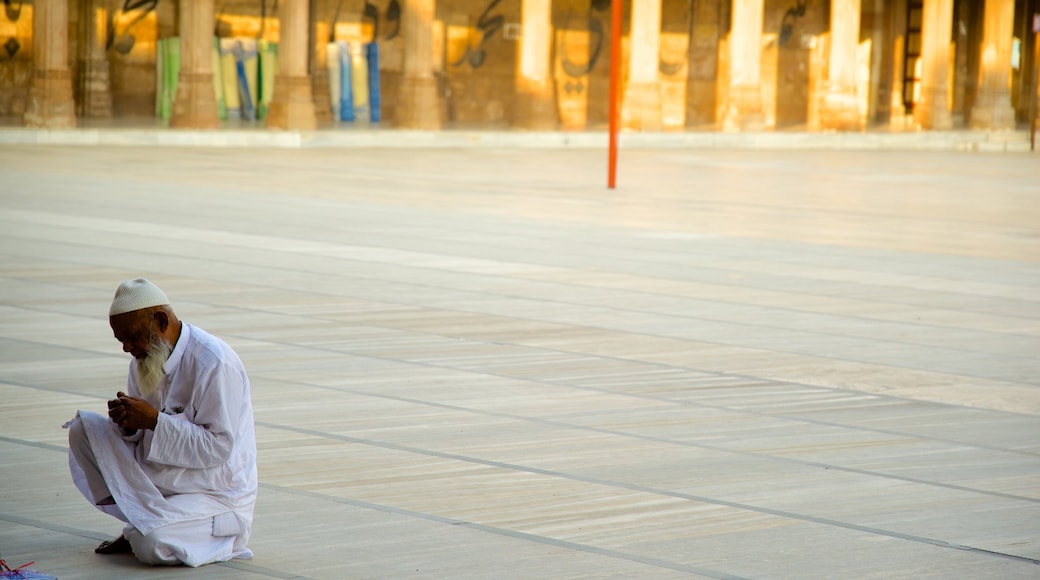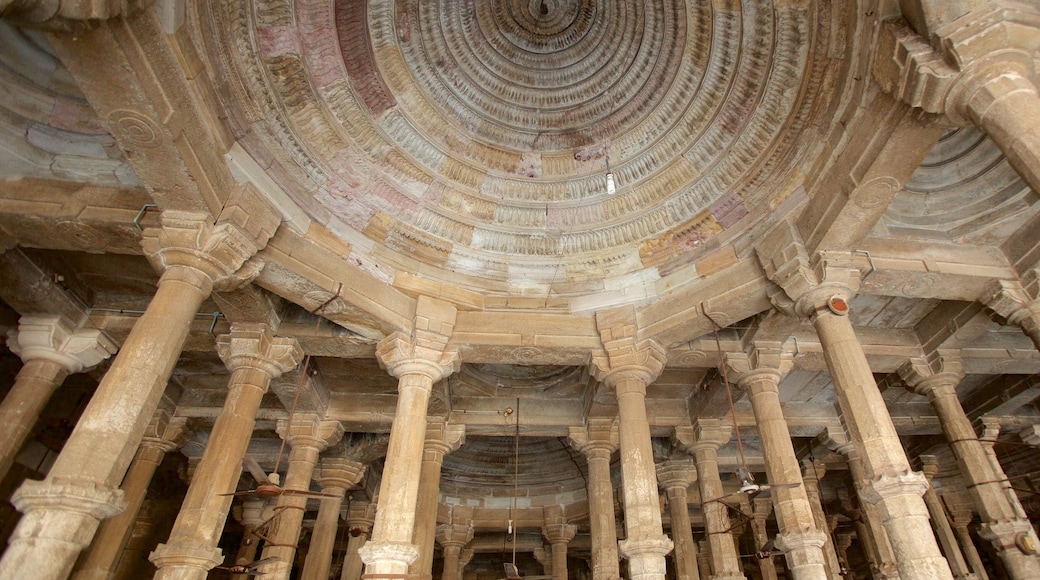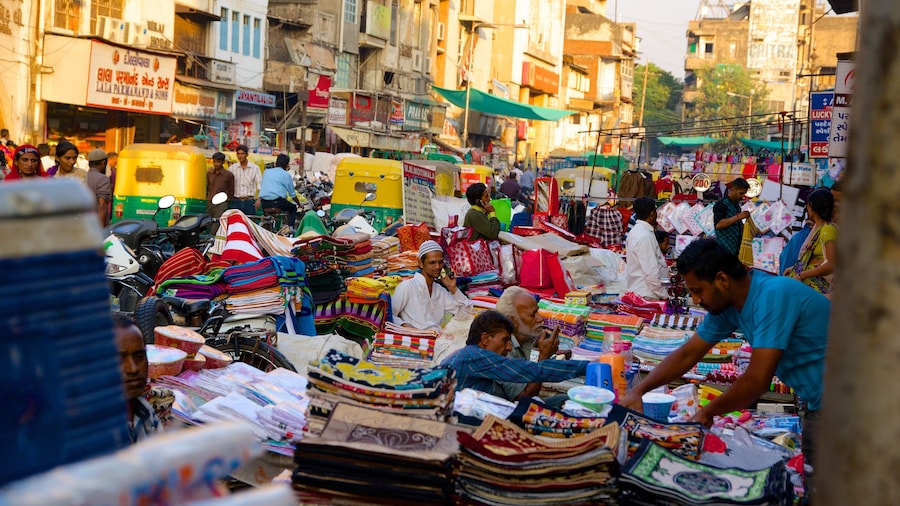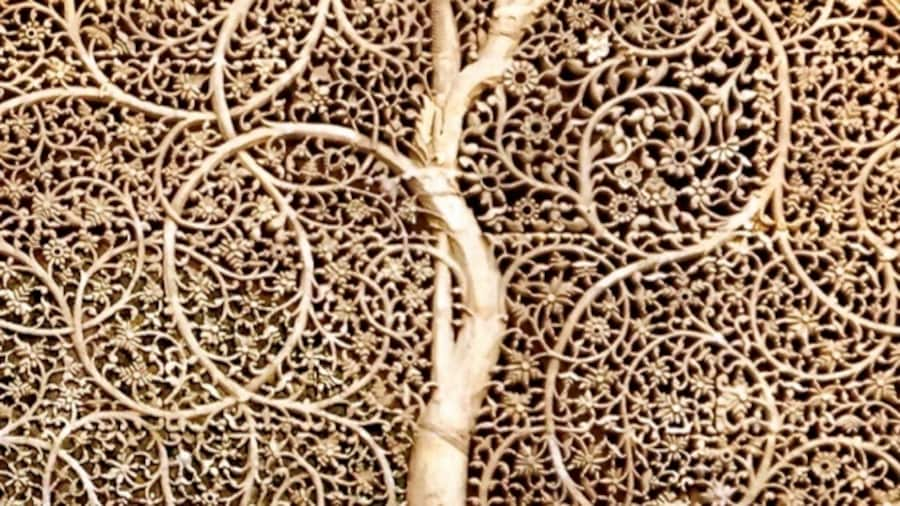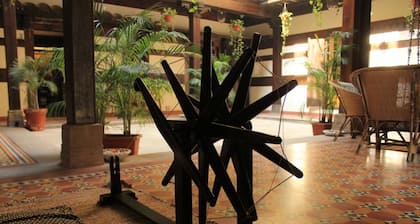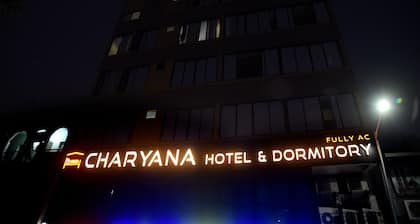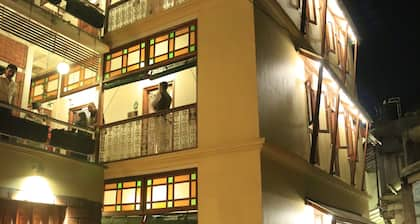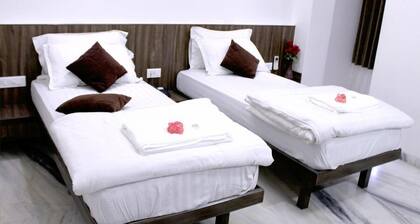Marvel at an architecturally impressive landmark and experience the spiritual enchantment at the Jama Masjid Mosque. This beautiful mosque is a beacon of tranquility set amid a bustling commercial district of Ahmedabad. Commissioned by the Sultan Ahmed Shah, it displays Indo-Islamic architecture and was constructed using material from destroyed temples. The Jama Masjid Mosque dates back to 1423 and took about 13 years to build.
Enter the mosque via the imposing central archway to discover a pristine marble courtyard. Check out the tank filled with holy water in the heart of the courtyard. Spot Arabic and Hindu-style carvings as you stroll through the mosque’s arcades. Peek inside the main prayer hall, which is supported by 260 individually unique pillars. Take time to study the religious artwork of each pillar. Look up to see 15 domes, which allow daylight but not direct sunlight to enter the prayer hall.
Just outside the mosque’s eastern entrance, find the mausoleum of Sultan Ahmed Shah. It features the tomb of the sultan as well as those of his son Mohammed Shah and grandson Ahmed Shah II. All were former rulers of the Gujarat state.
Sit on the edge of the courtyard and witness the mosque’s mystical charm. Worshippers wash their hands and face at the tank before prayer. Women come and go from the female-only prayer room. Gaze in wonder at how huge groups of devotees uphold an ambiance of calm and tranquility. Visit at dusk, when soft lighting spectacularly illuminates the courtyard.
The mosque sits in the heart of Ahmedabad’s historic center. It’s just a short walk from major city attractions such as Manek Chowk food market, Swaminaryan Mandir and the 15th-century Teen Darwaja gateway. Use low-cost auto-rickshaws and taxis to get here from other parts of the city.
The Jama Masjid Mosque is open daily, admission is free and photography is allowed. This is an active place of worship, so dress appropriately, with no shorts or short dresses. Remove your shoes before entering and leave them at one of the entrances. Access to the main prayer hall is restricted to men only.


